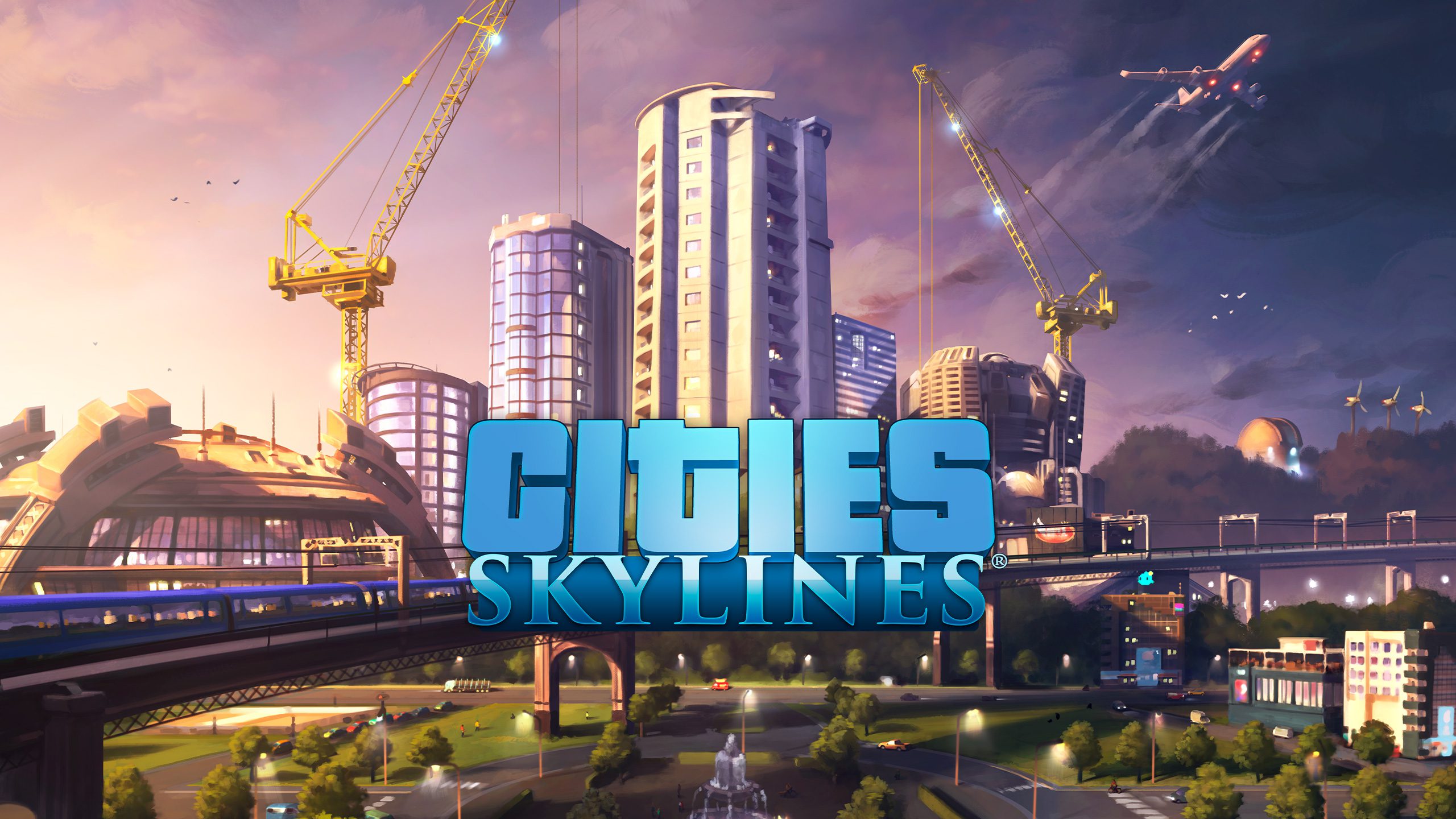Key Highlights
- Start small and expand gradually: Don’t try to build a sprawling metropolis right away. Begin with a small town and gradually expand as your population grows and your income increases.
- Plan your city layout: Carefully consider the placement of residential, commercial, and industrial zones. Think about traffic flow and the overall aesthetic of your city.
- Invest in essential infrastructure: Provide your citizens with basic necessities like water, electricity, and garbage collection. Don’t forget about public transportation.
- Keep your citizens happy: Balance taxes with essential city services like education, healthcare, and parks. A happy city is a prosperous city!
- Experiment and have fun: Cities: Skylines offers a lot of freedom to experiment with different city-building strategies. Don’t be afraid to try new things and see what works best for you.
Introduction
Cities: Skylines is a unique game made by Colossal Order. It lets you create and run your own dream cities. With its detailed features and realistic simulation, Skylines II stands out in city-building games. Are you excited to explore urban planning and become the best city planner?
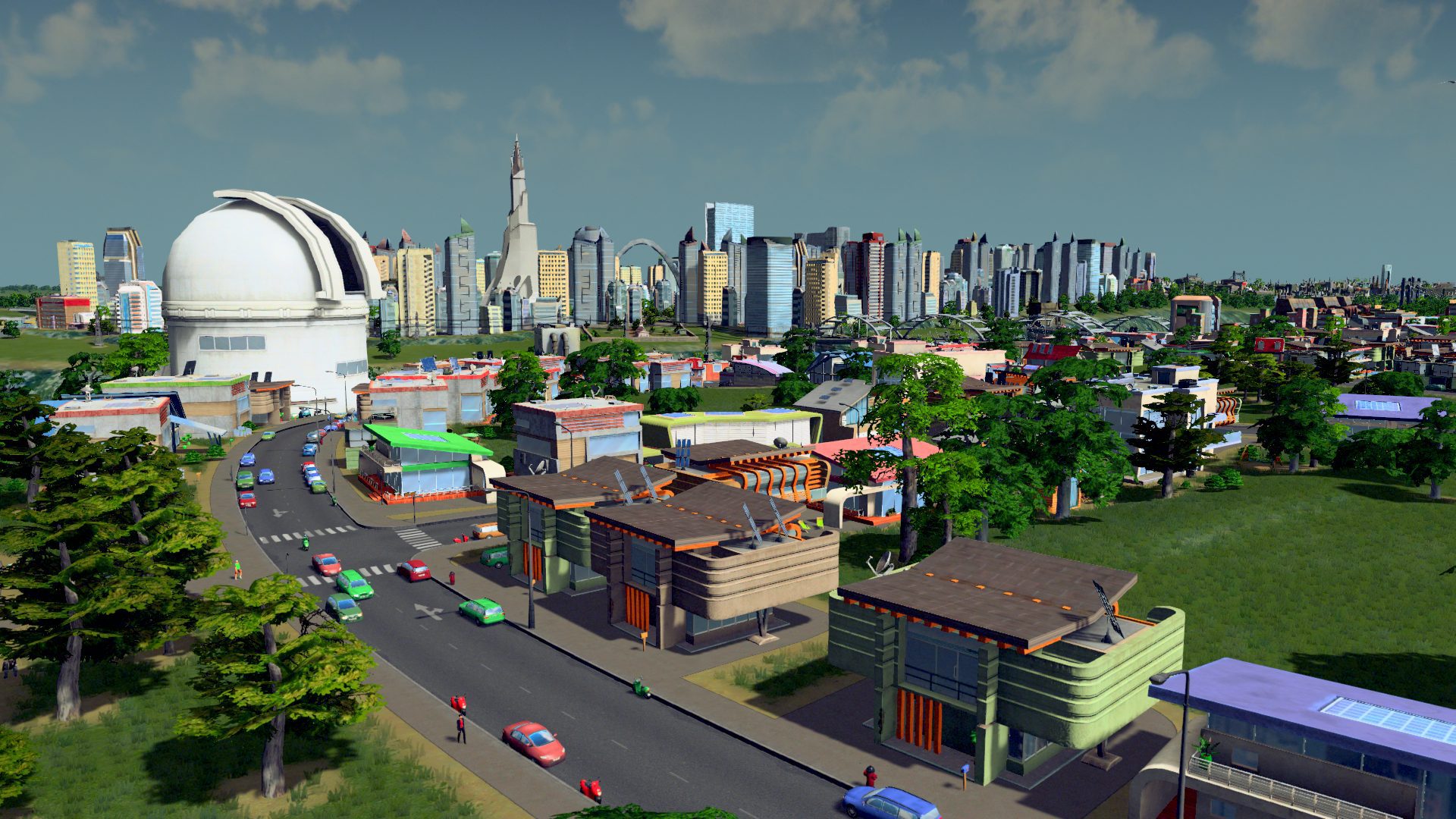
Understanding the Basics of Cities Skylines
Cities: Skylines is a classic city simulation that offers a unique city-building experience, enhancing the city building experience where you create your own city, introducing new game play elements that enhance the process and the hardships of creating it. You begin with an empty piece of land and it’s your job to turn it into a busy city. You start by designating areas for homes, businesses, and factories. You also build roads and make sure your city has water and electricity.
As your city expands, new challenges will arise. You must handle traffic problems, offer public services such as healthcare and schools, and keep the people living in your city satisfied and involved.
Key Features and Game Mechanics
Cities: Skylines, from the makers of the Cities in Motion series, stands out from other city-building games because it features a fully realized transport system with great detail and depth. The game has a smart traffic system that challenges players to build good road networks and public transport. The base game also has a detailed economy system. The choices you make can change how your city grows and thrives.
Plus, Cities: Skylines offers a lot of options to customize your experience. You can pick a play style that suits you. This can range from making a green and eco-friendly city to creating a busy economic hub.
Starting Your First City: What You Need to Know
First, remember that you are not just building a city. You are creating a community that lives and breathes. As the builder, you need to think about what your virtual citizens need and want.
Second, Cities: Skylines uses a real economy system. This means you have to manage your budget carefully. You need to balance money from taxes with what you spend on things like building new roads and city services.
Finally, don’t worry about making mistakes. Building a city is a process of learning. Even skilled players mess up sometimes. The important thing is to learn from your mistakes and change your plans if needed.
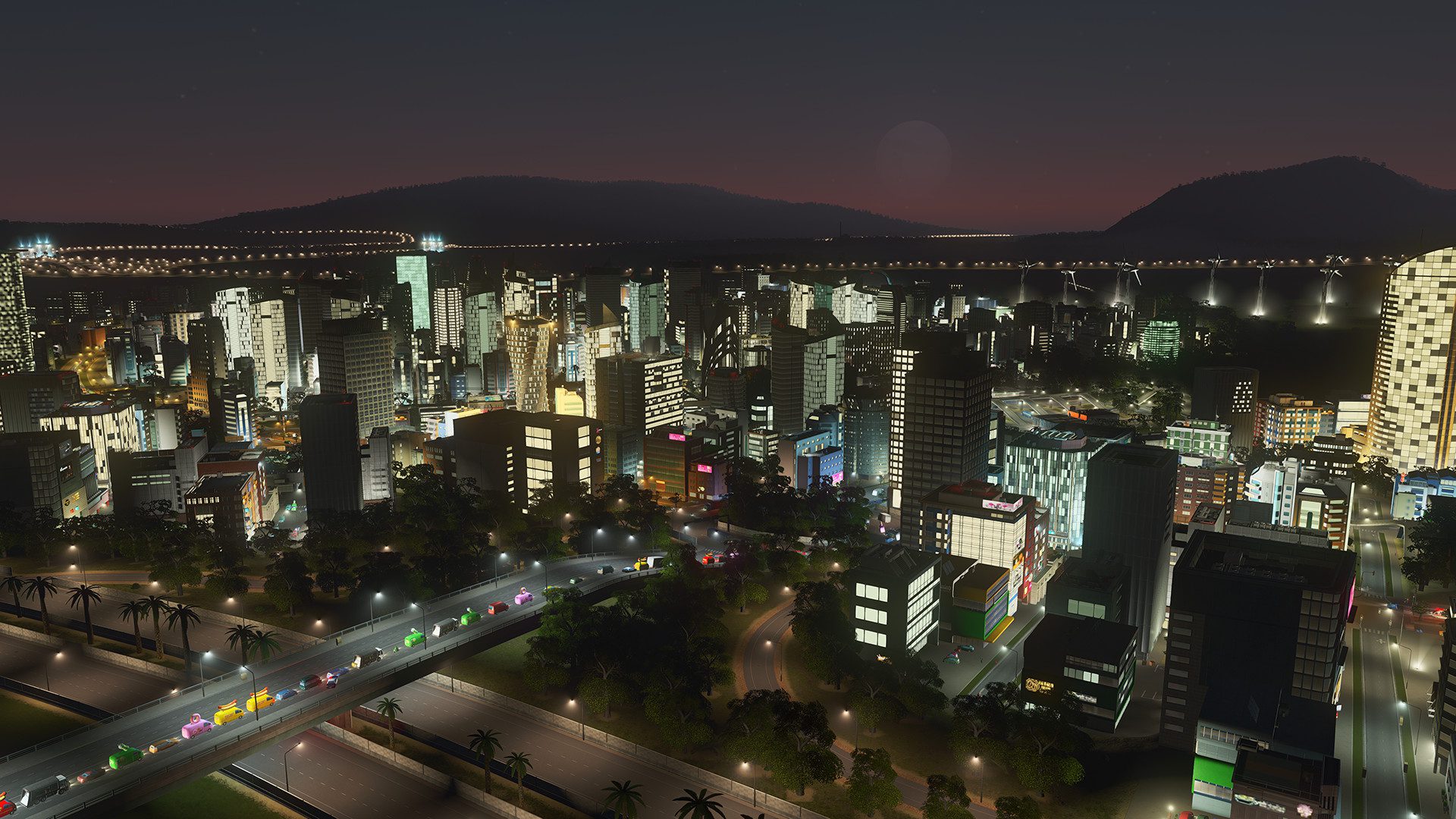
Planning Your City Layout
Before you start putting up buildings and roads, it’s important to have a clear idea of how your city will look. Do you want a big urban area, a charming European town, or a mix of both? Having a solid plan will help you avoid problems later.
Remember, a good city layout should focus on being efficient and comfortable to live in. Make sure that people can reach services easily, keep traffic moving well, and include parks and green areas to improve the quality of life.
Zoning Tips for Residential, Commercial, and Industrial Areas
- Residential zones: This is where your people live. Aim for a mix of low, medium, and high-density homes to attract many types of residents.
- Commercial zones: These areas have shops, restaurants, and offices. Place them where residents can easily reach them.
- Industrial zones: This is where goods are made and jobs are provided. They can cause pollution, so put them far from where people live.
Think about creating special districts to make each zone better. You can set up industrial areas for certain industries, high-tech housing areas, or busy commercial centers. Keep in mind that the application of policies for each district leads to a lively and realistic city.
Importance of Road Placement and Traffic Management
Effective road placement is very important in Cities: Skylines. If your roads are not designed well, it can cause traffic jams. This can hurt your city’s economy and make your citizens unhappy.
You should make a complete transport system. This should include highways, main roads, and smaller streets to help traffic move smoothly. A good mass transit system can also help reduce congestion.
Use the tools in the game. You can use timed traffic lights, one-way streets, and roundabouts. These will help improve traffic flow and stop blockages. Good traffic management is essential for a successful city.
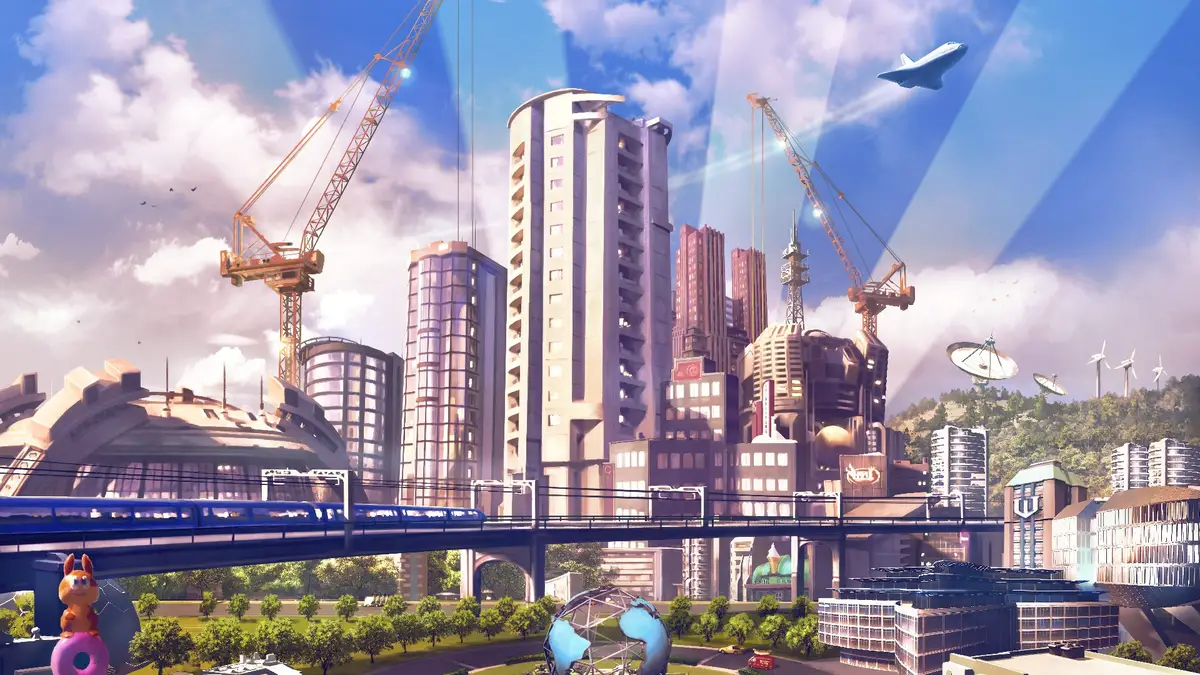
Essential Infrastructure for a Thriving City
A successful city needs more than just roads and zones. It requires strong infrastructure. These important parts help keep citizens happy and allow the city to run well.
Making sure there is clean water and proper waste management is very important. Paying attention to these basic needs is key for your city to grow and succeed.
Managing Water Supply and Waste Disposal
Water supply and waste disposal are essential requirements for any city. In Cities: Skylines, you must place water towers and pumping stations in smart locations. This way, you can make sure that all areas of your city get enough water.
Managing waste disposal is just as important. If you do not collect garbage, it can cause pollution and health issues for your citizens. It is a good idea to invest in garbage collection services. You could also set up recycling centers to help the environment.
Make sure that your water supply meets the needs of a growing population. Also, invest in enough garbage facilities to handle the waste created in your city.
Ensuring Electricity and Public Services
Providing a good supply of electricity is important for a city to work well. You have different power plants to choose from. Each one has good and bad points. Think about cost, the impact on the environment, and how much energy it produces when picking the power source for your city.
Along with power, services like police stations, fire fighting services, and healthcare facilities are important for keeping people safe and healthy. A happy and healthy population helps the city grow and do well.
As your city gets bigger, make sure you have enough police stations, fire stations, and hospitals for the growing number of people.
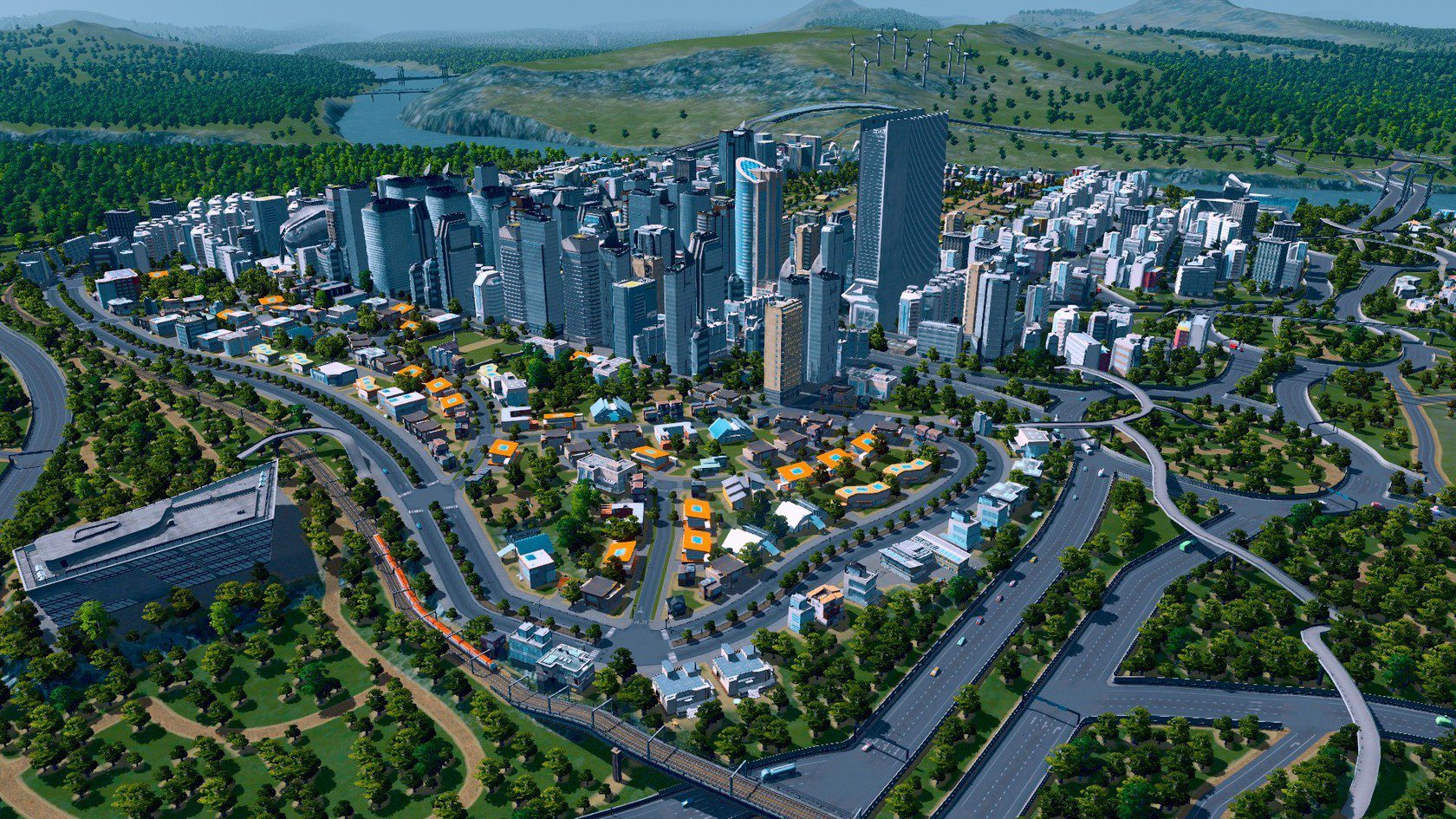
Growing Your City and Keeping Citizens Happy
As your city grows, you must find a balance between making money and keeping people happy. It’s not enough to just provide basic services.
A successful city in Cities: Skylines works well and gives a good life to its people. This attracts more residents and helps the city to thrive more.
Balancing Taxes and City Services
Cities: Skylines has a realistic economy system. In this game, taxes are your main way to earn money. But if you set taxes too high, people might not want to move to your city. This can make them unhappy and even cause protests.
Try to find the right balance by keeping taxes at a fair level in various parts of your city and district results and city hall. Make sure the money you collect goes back into important city services. For example, if you build schools and hospitals, you will have a smarter and healthier workforce. This helps the workers be more productive, which makes your economy stronger over time.
Parks, Education, and Healthcare Facilities
While water and electricity are very important, we should not forget about parks, schools, and hospitals. Parks give people a fun place to relax, which helps everyone feel better and happier.
Good schools make a skilled workforce. This can bring in better jobs and help the city’s economy grow. Access to quality healthcare is also key. It keeps people healthy, which leads to higher work output and less crime.
A happy and healthy community is likely to attract new people and businesses. This helps the city grow even more.
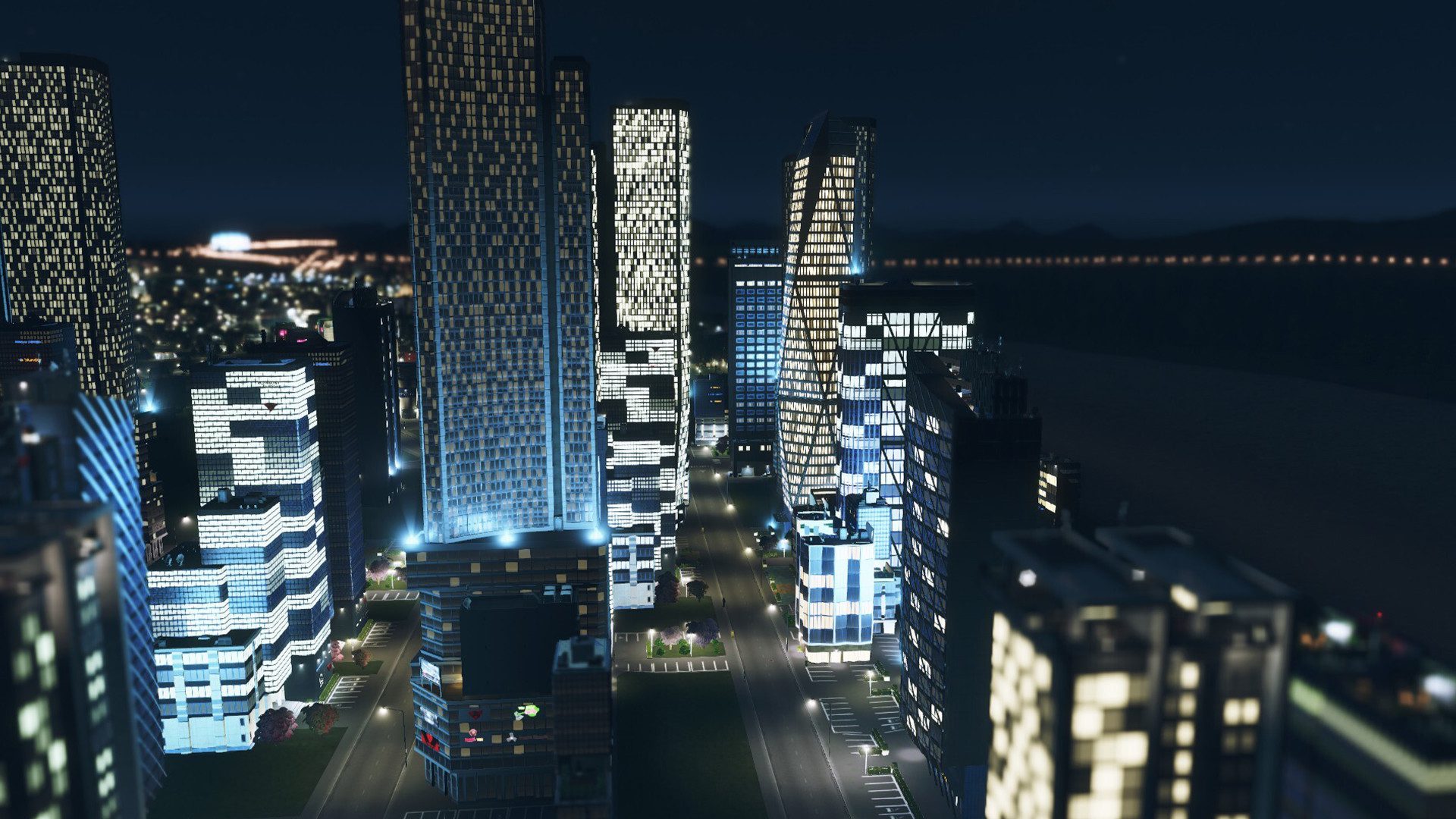
Conclusion
Building your first city in Cities Skylines is a fun journey. It has many challenges and needs your creativity. You will start by learning how the game works. Then, think about how your city should look and how to manage important services. Each step is important for your city’s success.
Pay attention to zoning, where you put roads, and keeping your citizens happy. These are important for a lively community. You should also balance taxes, offer services, and make some parks for fun. These things help your city grow.
If you use these tips and ideas, you will create a happy and successful city for people to enjoy. So, grab your mouse and begin building your dream city today!
Frequently Asked Questions
How do I fix traffic problems in my city?
- Create a variety of transport options with roads placed in good locations.
- Use traffic management methods, such as one-way streets and coordinated traffic lights.
- Promote mass transit to give a modern take on moving around the city efficiently.
Can you play Cities Skylines without internet?
Yes, you can play Cities: Skylines without the internet. This game is mainly a single-player experience. You do not need an internet connection to play it. But, some features like mods may need online access to download.
What’s the best map to start with for beginners?
The “Skylines II” map in the base game is easy to play and fair for everyone. It has different environments that work well with many play styles. This helps new players learn how to build and how the game works easily.
